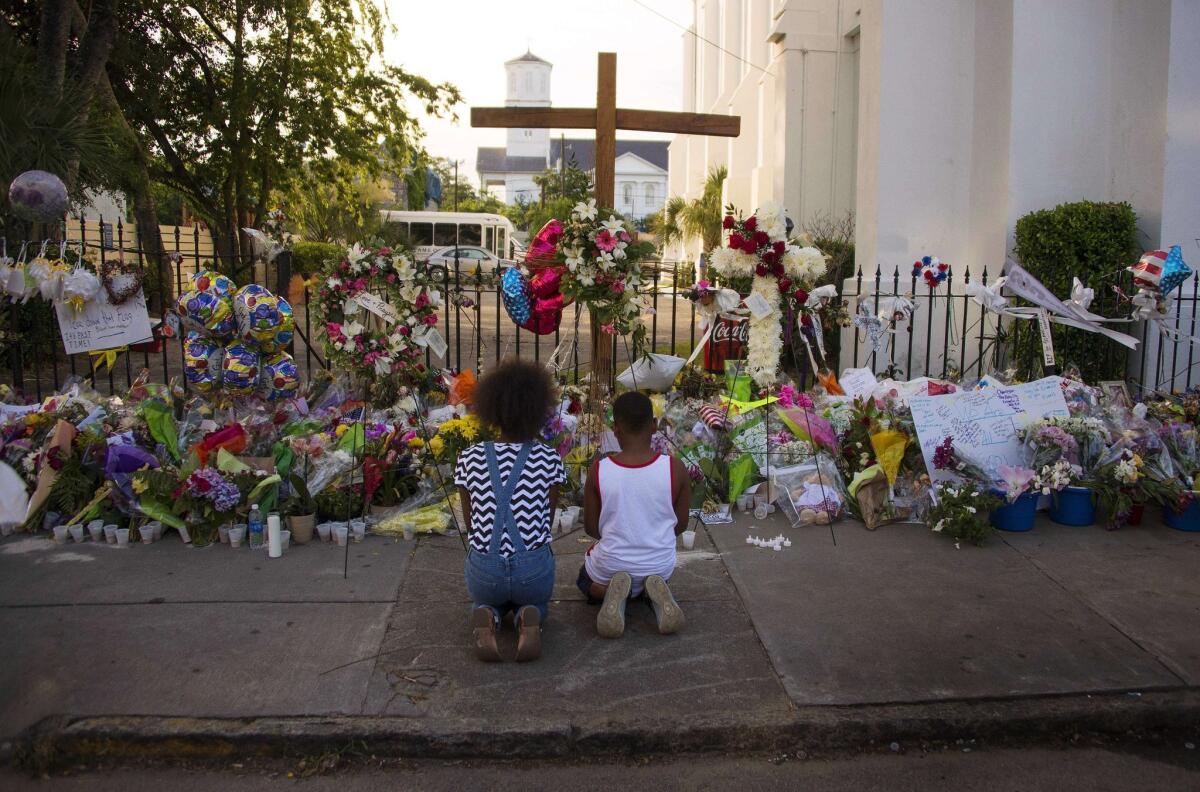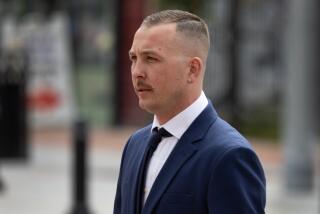Readers React: Charleston shooting: forgiveness and atonement don’t come cheap

Two children pray outside Emanuel AME Church in Charleston, S.C. where nine churchgoers were shot dead during bible study on June 17.
To the editor: I would like to add a hearty “amen” to Edward E. Baptist’s op-ed article (“Forgiveness won’t end racism in America,” Opinion, June 25) that says that injustice and forgiveness must be linked by atonement that includes repentance.
I would suggest that the dots can be connected in both directions. The perpetrator can suffer either literally by punishment or through the pain of conscience that leads to repentance. This can happen if he understands the pain he has caused.
The forgiver experiences atonement by accepting the pain he endures, as Jesus did when he said, “Father, forgive them, for they know not what they do.” His pain on the cross is seen by Christians as an atonement for the sins of the whole world.
Forgiveness is not cheap for the forgiver, but it may be perceived that way by the perpetrator if it does not lead to repentance for the pain he caused.
Ken Savage, Palm Desert
..
To the editor: Baptist gets right to the crux of the matter: It is not just racism, but white racism.
White racism has plagued this country for hundreds of years. From slavery to Jim Crow laws, lynchings, school and economic segregation, voting discrimination, prisons and the shooting of young unarmed black men by our police, it is obvious that black people are treated differently in this country. The African American community has been telling us this for years.
It is up to all white Americans to reach out and say this treatment must stop. Then it is a step-by-step process of atonement at all levels of society. This change begins in the heart.
Paul L. Hovsepian, Sierra Madre
More to Read
A cure for the common opinion
Get thought-provoking perspectives with our weekly newsletter.
You may occasionally receive promotional content from the Los Angeles Times.






